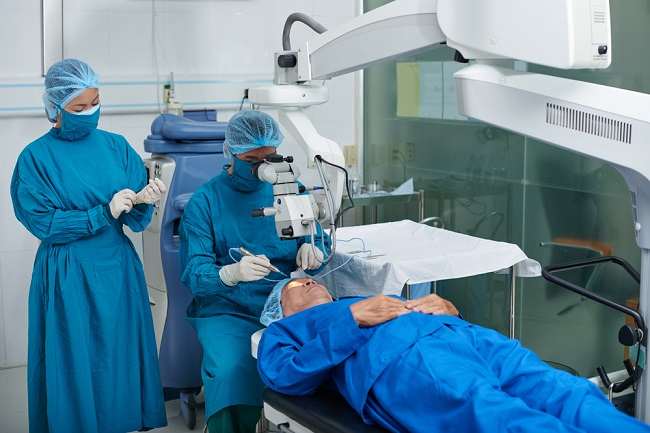Many of us mistakenly interpret the term nutritionist as the same as a nutritionist. In fact, even though they are both nutritionists, their authority and competence are clearly different.
A nutritionist and/or an associate nutritionist is a nutrition expert who is competent in providing information about nutrition, as well as recommendations for food and healthy eating patterns to the general public. The educational background of a nutritionist is Diploma III, while the category of nutritionist with an undergraduate education background is known as a nutritionist and nutritionist.

Meanwhile, a nutritionist is a specialist who focuses on dealing with the patient's health problems related to nutrition, and provides nutritional medical therapy according to the patient's condition and is oriented to the patient's history and general condition. His educational background is a general practitioner who has completed his master's education (S2) in nutrition and underwent specialization in clinical nutrition for 6 semesters.
Clinical nutrition is a discipline that studies the relationship between food and its nutritional intake with health and nutrition-related diseases and certain medical conditions. Starting from acute and chronic diseases, as well as the aging process (degenerative). The science of clinical nutrition is used in the aspects of prevention, cure, and prevention of continuing complications of a disease.
A nutritionist has the authority to formulate the nutritional intake you need to support your health, while a nutritionist has more authority. Nutrition specialists do not only formulate nutritional intake, but also perform other medical therapies related to the patient's condition, for example prescribing drugs, supplements, or medical actions related to nutrition and the patient's condition.
Not infrequently, nutrition specialists will work together with other specialists in dealing with patient conditions, such as surgeons and internal medicine doctors. Nutrition specialists also play an important role in advancing public health through education and health promotion efforts, particularly in the field of nutrition.
Nutritionist Specialist Clinical Authority
Competencies possessed by a doctor include the ability to perform clinical procedures related to health problems, such as determining a diagnosis through a physical examination and medical interview; supporting investigation; case management procedures to prevent, cure, and anticipate or reduce the risk of disease complications; to clinical emergencies.
In this case, a clinical nutrition specialist must have competence in accordance with his field of work, namely providing nutritional management such as:
- Perform a physical examination and history taking (medical interview).
- Provide health promotion related to nutrition and health to the community and patients as an effort to prevent disease.
- Review nutritional status, metabolism, and gastrointestinal tract.
- Provide fulfillment of nutritional and fluid needs in patients.
- Provide nutritional therapy and certain eating patterns, for example prescribing the required number of calories, protein, carbohydrates, fat, fiber, vitamins, and minerals.
- Determine how to provide nutrition, either orally (eating as usual), feeding through a gastric tube (nasogastric tube/NGT), or through an IV.
- Evaluating the nutritional status, as well as the patient's overall health after nutritional treatment.
Diseases Treated by a Nutritionist
Nutritionist specialists have clinical authority to provide nutritional management for the following health problems:
- Nutritional status problems
These include malnutrition, such as obesity, micronutrient deficiencies or deficiencies (vitamins and minerals), marasmus and kwashiorkor; nutritional disorders in vulnerable groups such as infants, children, adolescents, pregnant and lactating women, and the elderly.
- Impaired organ function and metabolism
This includes preparing nutrition for patients with gastrointestinal disorders, impaired liver and pancreatic function; metabolic and endocrine disorders as in diabetes; problems with the lungs and breathing; neurological disease; disorders of the kidneys and urinary tract: and diseases of the heart and blood vessels.
- Other diseases related to the immune system and malignant diseases
For example in the case of food allergies, nutrition for HIV/AIDS patients, nutritional care for cancer patients. Nutritional management is also given to patients receiving intensive care.
- Nutritional care in cases of serious injuries
Nutritionist specialists are also authorized to determine the evaluation of nutritional status and nutritional needs in seriously injured patients, such as extensive burns or injured patients requiring surgery.
- Nutritional improvement in eating disorders
Includes eating disorders such as anorexia and bulimia. People with eating disorders often experience severe malnutrition and dehydration which are dangerous to their health. Apart from being treated by a psychiatrist, improving nutritional status in people with eating disorders is also usually handled by a nutritionist.
The Right Time to Meet a Nutritionist
You can see a nutritionist when you need a consultation regarding nutrition and diet, either because of certain medical conditions or to improve nutrition and the health program that you are running.
A person can consult a nutritionist on a referral from a doctor who treats the patient's illness or on the patient's own initiative. For example, in cancer patients who lose weight and appetite as a result of chemotherapy side effects, it is recommended to consult a nutritionist on the recommendation of the treating doctor. Another example, in the case of obesity, patients need nutrition consultation and diet to lose weight, as well as other medical steps to overcome obesity.
Preparation for Consultation with a Nutritionist Specialist
Before seeing a nutritionist, you should prepare the following things:
- Prepare a note of the questions you want to ask and a history of complaints or symptoms you are experiencing, as well as a history of eating patterns and daily activities.
- If any, prepare documents related to supporting examinations, such as the results of blood tests, X-rays, or CT-scan.
- Inform your doctor about the drugs and supplements you are taking.
- If after an examination, a nutritionist prescribes medication or dietary recommendations, make sure you understand them. Also ask about the available treatment options, the success rate, and the risks of each treatment.
- Make sure you choose a qualified nutritionist. You can ask for recommendations from general practitioners, internal medicine doctors, or recommendations from relatives. Make sure the doctor you choose is able to communicate well in explaining nutrition or the necessary treatment steps.
- Make sure to choose facilities and services that have a good, complete, and friendly image.
- If you want to take advantage of BPJS or your insurance, make sure the hospital or clinic is affiliated with BPJS or your insurance provider.
After undergoing a consultation and examination, a nutritionist will determine a diagnosis of your disease and nutritional status, and determine a nutritional therapy plan to treat the condition.









